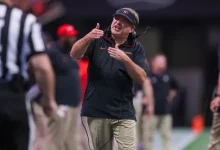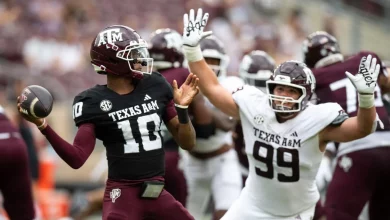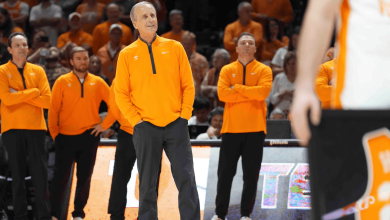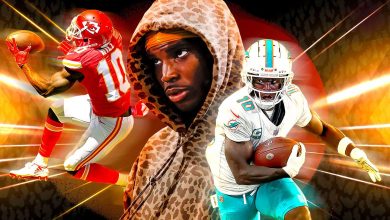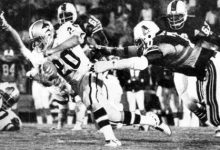Tennessee AD Danny White supports collective bargaining, signaling openness to new athlete compensation models amid evolving college sports landscape.
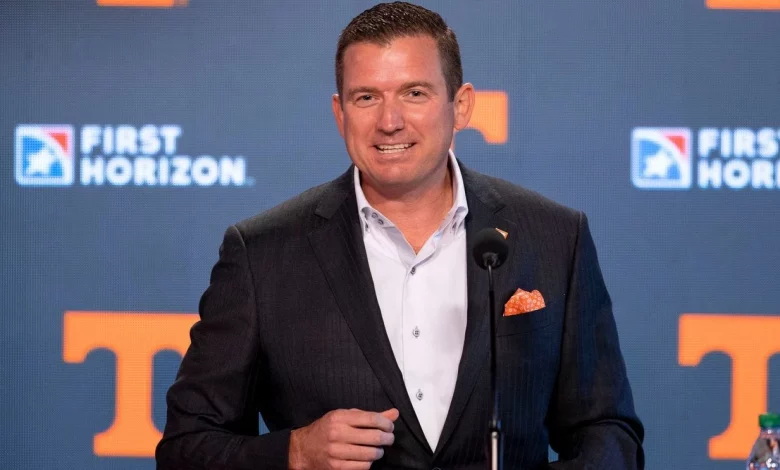
In a rapidly evolving college athletics landscape shaped by Name, Image, and Likeness (NIL) deals and legal challenges to amateurism, University of Tennessee Athletic Director Danny White is taking a bold and potentially transformative stance. During a recent interview, White expressed support for the concept of collective bargaining between college athletes and institutions—an idea that could fundamentally reshape how college sports operate moving forward.
White’s comments come at a pivotal moment in college athletics history. As lawsuits mount, NIL collectives grow in influence, and the NCAA faces increasing scrutiny from lawmakers and the courts, athletic directors across the country are grappling with how best to protect their programs while ensuring fairness for student-athletes. White’s openness to collective bargaining marks a significant shift from traditional resistance in the industry—and places Tennessee at the forefront of what could become a new era in college sports governance.
Danny White’s Forward-Thinking Vision
“I think it’s time to have a serious national conversation about collective bargaining,” White said during an appearance at the SEC Spring Meetings in Destin, Florida. “We’ve entered an era where student-athletes are already being compensated. If we want a sustainable model for the future, we need to treat this more like a professional relationship.”
White emphasized that his support is not about undermining the collegiate model or diminishing the academic mission of universities. Instead, he sees collective bargaining as a proactive solution to legal uncertainty and growing disparities in how different institutions compensate athletes through NIL deals and third-party collectives.
“We’re seeing a landscape right now where there’s no structure, no limits, and no consistency,” White explained. “Schools are hesitant, collectives are competing, and athletes are caught in the middle. A framework that includes collective bargaining could bring order to that chaos.”
What is Collective Bargaining in College Sports?
Collective bargaining refers to the negotiation process between employers and employees—in this case, potentially between universities and athletes—regarding working conditions, compensation, and rights. Traditionally reserved for professional sports leagues and labor unions, the concept is now gaining traction in college athletics amid arguments that athletes are functionally employees of their schools.
Several legal developments have bolstered that view. In 2021, the Supreme Court ruled in NCAA v. Alston that the NCAA could not limit education-related benefits, setting a precedent for broader challenges. More recently, the National Labor Relations Board (NLRB) filed complaints asserting that some college athletes should be classified as employees with the right to unionize.
White’s support for collective bargaining signals that Tennessee may be willing to embrace this evolving legal reality—rather than resist it.
A New Direction for the SEC?
Danny White’s position could also spark larger conversations within the SEC and Power Five conferences. While some athletic directors and university presidents remain skeptical or outright opposed to employee classification for student-athletes, others have privately expressed openness to more formal agreements governing athlete compensation, health benefits, and long-term support.
SEC Commissioner Greg Sankey has acknowledged the need for reform but stopped short of endorsing collective bargaining. Still, White’s comments add pressure to conference leadership to consider options beyond traditional amateurism.
“I respect Danny’s willingness to think creatively and put student-athletes first,” said an unnamed SEC administrator. “We may not all agree on the path forward, but ignoring these issues isn’t an option anymore.”
Benefits for Athletes
Collective bargaining could offer athletes significant protections and benefits currently unavailable to them under the NCAA model:
- Guaranteed health insurance and injury protection
- Standardized NIL opportunities and revenue sharing
- Educational incentives and post-career support
- Clear transfer rules and contract guidelines
For Tennessee athletes, this could mean more financial security and fewer risks when it comes to injuries, eligibility concerns, or navigating complex NIL arrangements. It also opens the door to negotiating for long-term benefits, such as degree completion programs and mental health services.
“I think we all want what’s best for the players,” said Tennessee football coach Josh Heupel. “Whatever gives them stability and ensures fairness—without compromising the team dynamic or academic mission—I’m open to it.”
Potential Challenges and Legal Hurdles
Despite White’s endorsement, collective bargaining in college athletics faces substantial legal and logistical challenges. Chief among them is the question of whether college athletes can be classified as employees. The NCAA has long fought this designation, arguing that athletes are students first and that the educational experience is central to their participation.
If athletes are recognized as employees, universities could face new financial and regulatory burdens, including payroll taxes, workers’ compensation claims, and potential Title IX implications regarding equal pay and benefits.
There’s also the question of who would represent athletes in bargaining. Would they unionize by sport, by school, or under a national umbrella? Would walk-ons have the same representation as scholarship athletes? These are complex issues that would require careful negotiation and federal oversight.
Still, legal experts say the tide is shifting.
“Danny White is reading the room correctly,” said sports law professor Mit Winter. “The old model is crumbling. Whether through unionization, congressional legislation, or court rulings, college athletes will likely have formal representation in the near future.”
Tennessee’s Track Record Under White
Since arriving at Tennessee in 2021, Danny White has earned a reputation as a progressive and dynamic leader. He helped stabilize a tumultuous athletic department, hired Josh Heupel to revitalize the football program, and oversaw substantial investment in facilities, fan engagement, and NIL education.
Under his watch, Tennessee has become one of the SEC’s most forward-thinking programs on athlete branding and compensation. The Vols have partnered with local businesses, built robust NIL infrastructure, and empowered athletes to grow their personal brands.
White’s latest stance is consistent with that track record.
“This is not about being first or being flashy,” he said. “It’s about doing what’s right for our athletes and setting up college sports for long-term success.”
National Reactions
Reactions to White’s comments have been mixed but mostly positive.
ESPN’s Paul Finebaum called it “a watershed moment” and praised White’s courage.
“This is exactly the kind of leadership the sport needs right now,” Finebaum said. “Instead of clinging to the past, Danny White is looking to the future.”
Others were more cautious. Some administrators worry that collective bargaining could widen the gap between large programs like Tennessee and smaller schools with limited resources.
“Not every athletic department can handle the financial implications of collective bargaining,” said a mid-major athletic director. “It might work for the SEC and Big Ten, but it could kill Olympic sports at the Group of Five level.”
The Road Ahead
It’s clear that college athletics is in the midst of a seismic shift. The question is no longer whether the system will change—but how fast, and in what direction.
Danny White’s endorsement of collective bargaining doesn’t resolve all the legal or logistical challenges ahead, but it represents a crucial step toward reconciling the commercial realities of college sports with the rights and welfare of the athletes who power it.
For Tennessee, it also positions the university as a leader in shaping the future of college athletics. By taking a bold stance and engaging openly with uncomfortable questions, White is laying the groundwork for a new era—one in which athletes have a seat at the table, and the business of college sports is conducted with greater transparency, fairness, and foresight.
Danny White’s support for collective bargaining marks a potential turning point—not just for Tennessee athletics, but for the entire landscape of college sports. As more programs, conferences, and courts wrestle with the rapidly changing dynamics of athlete compensation and rights, Tennessee’s forward-leaning approach could provide a model for others to follow.
The road will be complex and contested, but the principles White has championed—fairness, transparency, and athlete empowerment—are likely to play a central role in whatever model emerges.
And in Knoxville, the message is clear: the Vols aren’t just keeping up with the times. They’re helping define what comes next.

